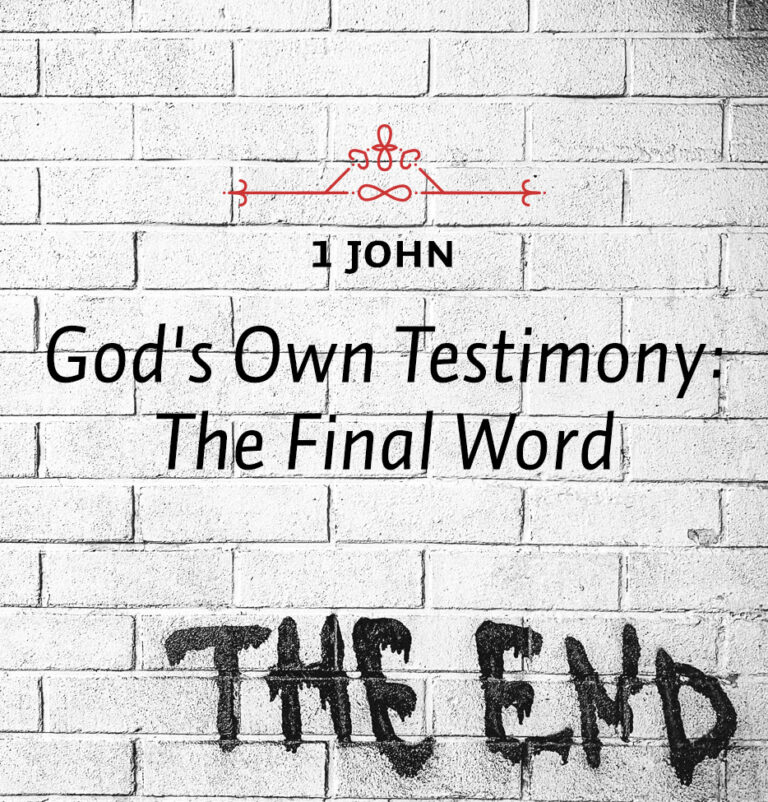
Monday: The Father’s Witness to Jesus
John does three things in this passage. First, he marshals witnesses to Jesus in which the testimony of the Father is found. Second, he contrasts the testimony of men with God’s testimony, stressing that God’s testimony is to be believed and trusted. Third, he sums up God’s testimony and joins it to a final statement of his purpose in writing the letter.



